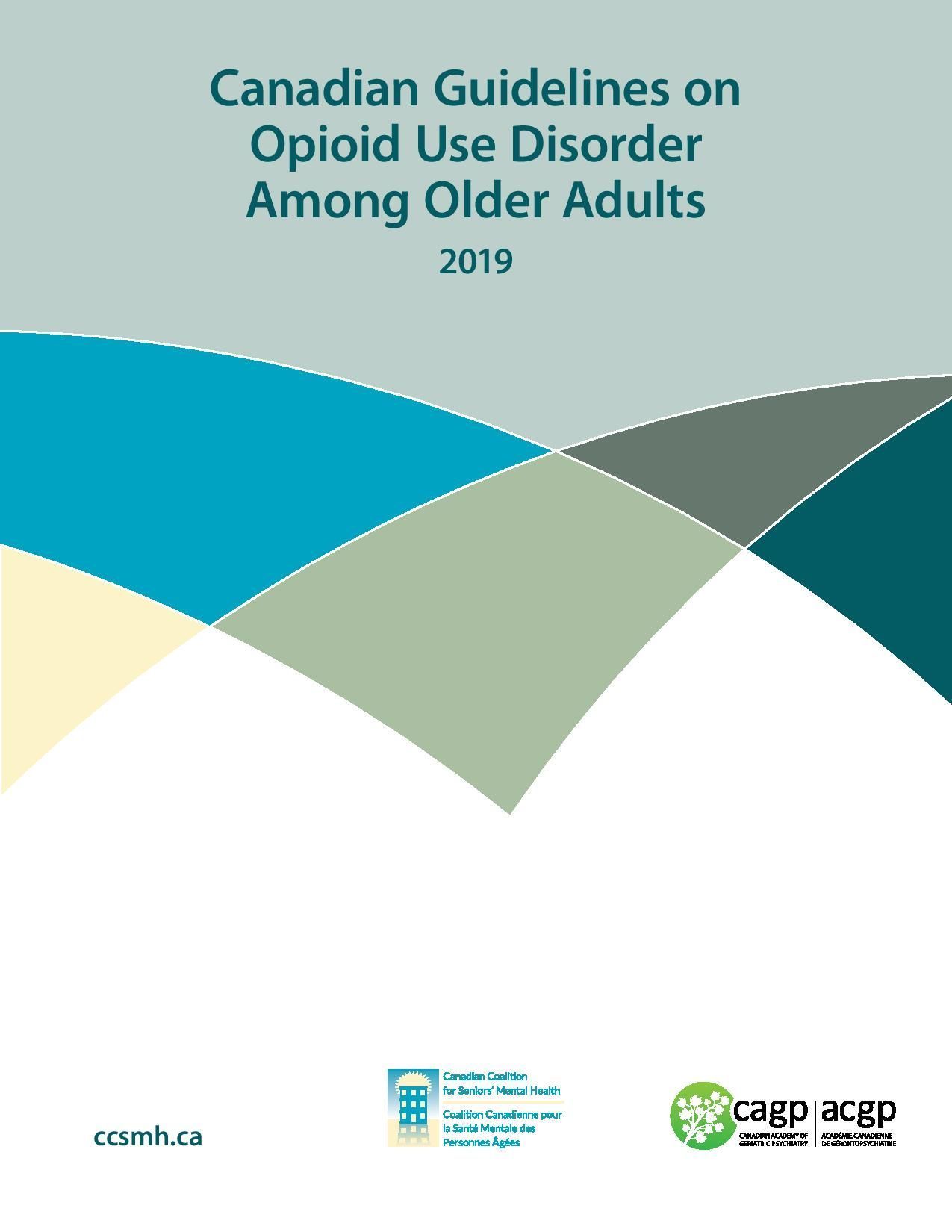Opioids – Health Care Professionals
Clinical Guidelines
Discover the guidelines on alcohol use in older adults.
For Older Adults & Care Partners
Explore ways to support mental health and well-being for yourself and loved ones.
In general, two populations develop opioid use disorder - those with longstanding use since teens or twenties, and those that develop it later in life after prescription exposure for pain. In 2015, older adults in Canada were the age group with the highest prevalence of hospitalization due to opioid overdose.
Discover Our Resources

Read the Guidelines
Discover these evidence-based guidelines and best practice recommendations on the prevention, identification, assessment, and management of opioid use disorder among older adults.
Discover Online Resources for Opioid Use Disorder
This list is designed to help primary health care & clinical care providers assess and discuss with persons aged 65 or older, the potential risks and benefits of opioid use.
Read the publication in the Canadian Geriatrics Journal (March 2020)
Watch the webinars below for more information
Clinical Guidelines on Opioid Use Disorder (2019)
Presented by Dr. Launette Rieb, family physician, addiction medicine specialist, researcher, and Clinical Associate Professor in the Department of Family Practice at the University of British Columbia.
Older Adults and Substance Use Disorder (2023)
Presented by Dr. Jonathan Bertram, MD, CCFP (AM), Addiction Specialist at CAMH.
